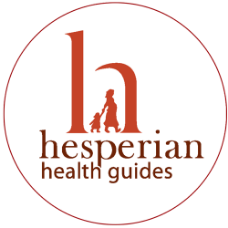
Health Actions for Women
Melissa Smith, Sarah Shannon, Kathleen Vickery | 2015Hesperian Health Guides
$24.95
Health Actions for Women addresses the social factors that prevent women and girls from enjoying healthy lives. This guide offers proven strategies to help women and men facilitate community discussions and action, even in challenging settings where organizing for women’s health is difficult or dangerous. Also available in Spanish, Khmer, Lao and Nepali.
“Women’s health is more than medicine.”
— Health Actions for WomenHealth Actions for Women is an innovative resource for women, girls, and their allies working to educate, advocate, and mobilize their communities for women’s health and rights.
The illustrated stories and activities in this guide encourage and strengthen community efforts to challenge violence against women, increase access to contraception, foster safe motherhood, counteract the harmful effects of restrictive gender roles, promote sexual health, and ensure that health services meet the needs of women and girls.
This invaluable companion to Where Women Have No Doctor was field-tested with community groups in 23 countries to help women, girls, men and boys create successful, long-lasting avenues for social change.
Want to use Health Actions for Women in your class? Download our teaching guide, free with a purchase of Health Actions for Women.
View Sample Pages
Table of Contents (PDF)Chapter 1: Taking Action for Women’s Health (PDF)
Field-Testing Health Actions for Women
Health Actions for Women was developed in coordination with community-based organizations and women’s health advocates worldwide. Throughout 2012-13, chapters were sent to 40 community-based partners in 23 countries. Field testing brought together diverse groups of younger and older women, groups that mixed adolescent girls with young married women, and mixed gender groups. Overall, 1,400 people participated in discussions, tried out new activities, and submitted feedback and insights about the issues most important to their communities. This field-testing map shares some of their experiences, along with activities from the book that were used in field-testing.
Praise for Health Actions for Women
"No other resource today provides such concrete tools to engage communities and empower women of all ages to build lasting change from the ground up. A triumph!"— Cecile Richards, President, Planned Parenthood Federation of America
"Using this book, we can create enduring change by starting from the experiences of women, by respecting our knowledge, cultures, and traditions, and by bringing our stories to the fore as we envision and work toward a brighter, more just future. Well-being is living fully."
— Rigoberta Menchu Tum, Nobel Prize Winner, 1992
“Basic health care remains inaccessible to millions of poor women. Health Actions for Women is critical to the advancement of the movement for global health equity and the eradication of so much needless suffering.”
— Paul Farmer, MD, Co-founder, Partners in Health
“The participatory process of developing this resource book ensures that activities and ideas from grassroots women's groups in many countries will be included. The book will discuss about how to talk about and work on subjects, such as when women die giving birth, or why girls should not be forced to marry early, and what women can do to begin to change these situations. This book will sure prove useful to many organizations all over the world including CHETNA.”
— Pallavi Tarang, Hesperian Field-Testing Partner, Centre for Health Education, Training and Nutrition Awareness (CHETNA)
“After the field testing exercise in the Soul Clinic community, women are working together to prevent crimes in their community. They conduct regular meetings involving female police personnel to insure that all ghettos in the community are closed and people are restricted from insulting openly.”
— Women Solidarity, Inc (WOSI), Hesperian Field-Testing Partner



